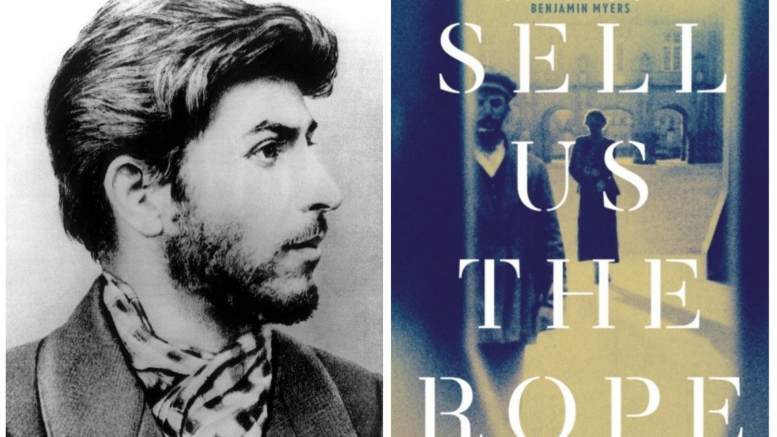Stephen May’s Sell Us The Rope is a new novel about the London congress of the Russian Social Democratic Labour Party of 1907. Lenin, Trotsky, Stalin and Rosa Luxemburg play leading roles in the story. I know: it sounds great. But before you click on ‘Buy Now’ on Amazon, let me tell you a bit more.
The book’s premise — that Stalin was a long-term, paid informer for the tsarist secret police (the Okhrana) — made the story especially interesting for me. The fact that it had a positive review in The New York Times — that was icing on the cake.
Sadly, this is a very disappointing book. The research seems to consist of the author reading (more likely — skimming) a single book from a couple of decades ago that argued Stalin had been an agent of the tsarist police. The author of that book, Roman Brackman, built his case on the testimony of NKVD General Alexander Orlov, who was perhaps the least trustworthy source imaginable. Following his defection to the West in the late 1930s, Orlov neglected to tell his FBI handlers that during his time in England, he recruited the infamous Cambridge spy ring. And of all the stories circulating about Stalin’s role as a police agent, Orlov’s is probably the least reliable.
There is little evidence that Stephen May read anything else about the colourful history of the Russian revolutionary movement — and anyone with a passing knowledge of that history will spot the bloopers from early on.
For example, the Okhrana super-spy Ievno Azef, was not “the former head of the party’s combat organisation”. He was the head of a different party’s combat organisation, a party which was a rival to the Social Democrats. It was called the Social Revolutionary Party.
And the idea that Stalin consorted with Trotsky in London was absurd. Trotsky wrote about meeting Stalin briefly — noting that he could barely remember the man. His disdain for Stalin was one of the many reasons that the future Soviet dictator hated Trotsky and eventually had him killed.
The characterisation of Rosa Luxemburg is actually offensive. She is depicted in this book in the same way as the anarchist Emma Goldman was portrayed in E.L. Doctorow’s Ragtime, which was a far superior book. Rosa is shown as a sexually liberated woman giving life lessons to a younger female comrade while bathing together. You’d not imagine such a character as the author of dense economic works such as The Accumulation of Capital, or The Industrial Development of Poland. In this book, Luxemburg seems to have hardly any interest in politics.
The most important figures in the Russian revolutionary movement, including Plekhanov and Martov, are treated as buffoons.
Much of this could be forgiven if there was an interesting story to tell. But there is no story. Nothing happens. Romances that might have taken off go nowhere. People whose lives appear to be under threat are rescued. In the end, everyone attends a congress — about which we learn almost nothing — and then goes home. Historically illiterate, offensive in its treatment of key intellectual figures on the Russian Left, and devoid of any drama or tension, this is a completely vacuous work.
Meanwhile, the true story of the young Stalin and his relationship with the tsarist police remains to be written.
This article appears in this week’s issue of Solidarity.
